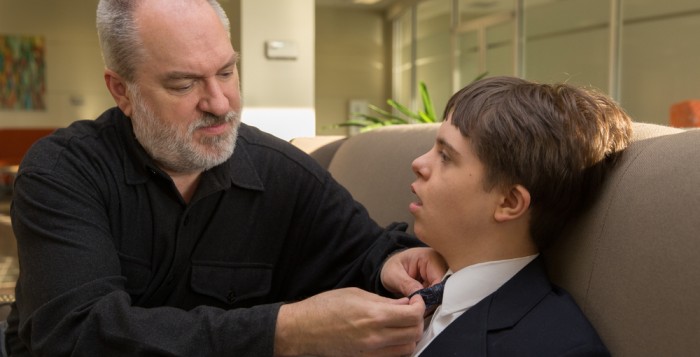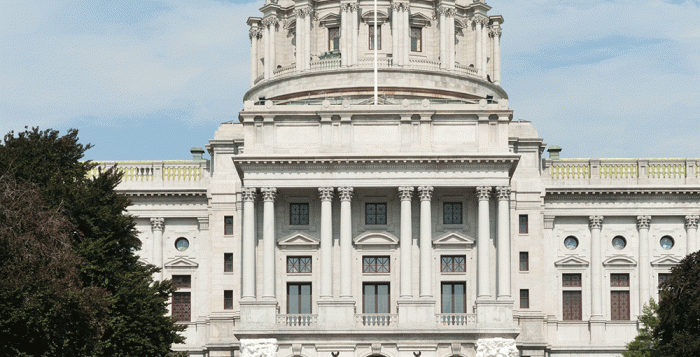Funding
Times Leader: Luzerne/Wyoming Providers Association Forum Focuses on Workforce Initiatives, Funding, Co-Moderated by RCPA President/CEO Richard Edley and Director of GA Jack Phillips
Pittsburgh Post-Gazette Editorial: Legislators Must Keep Shapiro’s Disability Care Funding Intact
McKnights: Provider Groups Applaud Millions in Proposed Investments in Older Adults but Say Plans Fall Short
DHS 2024/25 Budget Presentation & Recording Now Available
Last week, Governor Shapiro presented his proposed budget for 2024/2025. The PowerPoint with the Human Services Spending Overview outlines the priorities, and the recording is available on the DHS YouTube channel.
RCPA staff will continue to advocate for appropriate levels of funding for our members’ services in the community. We will keep you updated with information as the process continues. If you have any questions, please contact your RCPA Policy Director.
DHS 2024/25 Budget Presentation Gives Good News for IDD Providers
Today, Secretary Arkoosh presented an overview of the proposed Department of Human Services (DHS) budget in the Governor’s proposed budget he unveiled earlier this week. Governor Shapiro is prioritizing investments in IDD home and community-based service providers so that they can pay competitive rates to attract and retain staff who provide these life-changing services to Pennsylvanians.
Secretary Arkoosh stated, “It’s time to make a change,” and people need “the right service at the right time.” PA is about to embark on a multi-year wait list plan.
In September, Governor Shapiro directed DHS’s Office of Developmental Programs to begin an immediate evaluation and assessment of the rates paid to intellectual disability and autism programs that employ direct support professionals. Building on that, the governor is proposing an increase in reimbursement rates by 12%, which will invest a total of over $480 million, divided by state ($217 million) and federal ($266 million) funding for programs that support ID/A. It is proposed that the rate increase will become effective July 2024. Additionally, one-time supplemental payments to support staffing recruitment and retention were announced. These funds are anticipated to be distributed to providers in May or June 2024 and will total $109 million.
ODP will be working closely with counties to shift to management by budget rather than slots, and effective immediately, the department is adding 1,250 in Community Living and 250 in Consolidated people to the waiver capacity ($78 million in funding).
This budget also invests $934,000 to add American Sign Language and English interpreter services to program serving this population as a distinct service.
While this is very positive news for the ID/A community, this is the proposed budget. We all need to continue to advocate with legislators to support this proposal and give the ID/A services the support they need. Please share your stories with your local legislator and participate in our upcoming capitol day on March 19, 2024. You can register to participate in the event here. Also, we ask that you take the time to thank Governor Shapiro for hearing our voices and addressing our critical needs.
Capitolwire: Early Start to Mental Health Funding Debate
Shapiro Budget to Boost Spending on HCBS for ID/A Services, RCPA President/CEO Richard Edley Quoted
The following comes from WFMJ:
Shapiro’s proposal would boost spending on home and community services for the intellectually disabled and autistic by about $200 million, or 12% more.
That’s about half the amount that advocates say is needed to fix a system beset by staffing shortages, low pay and a thousands-long waiting list.
Still, advocates applauded it.
“It’s the first large systemic effort at addressing this issue,” said Richard Edley of the Rehabilitation and Community Providers Association. ”This isn’t going to fix it, but at least it’s major step toward addressing it.”
Read the full article here.
ID/A Community Praises Gov. Shapiro’s Budget Address, Actions on Addressing System Funding
Shapiro Proposes Mental Health Services Funding for 2024/25 Budget
During this week’s budget presentation by Governor Shapiro, funding for mental health services was addressed as a priority for vulnerable Pennsylvanians. RCPA is working to review the preliminary funding recommendations listed below, and we hope to have greater line-item insight from DHS Secretary Arkoosh’s address this Friday.
Please note that registration is now open for the DHS 2024/25 Budget Briefing. You can register to view the briefing here. Additionally, the DHS House and Senate Budget Hearings will be March 5 and 6, 2024, respectively, and RCPA has been asked to provide questions for the testimony. The DHS budget book is available here.
Lastly, as part of our RCPA Mental Health Steering Committees and Work Groups, we will review recommendations as we develop our strategic budget advocacy campaign over the next several months in our meetings with stakeholders and legislators.
We offer the following as the initial review of yesterday’s budget presentation:
2024/25 Budget: Mental Health Program Recommendations:
This budget recommends the following changes: (Dollar Amounts in Thousands) for Mental Health Services
- $20,000 — To replace nonrecurring prior-year carryover funding.
- $5,750 — Initiative to expand diversion and discharge for individuals with mental illness currently in the criminal justice system.
- $18,259 — To continue current programs.
- $20,000 — To restore one-third of base funding to counties.
- $3,443 — To replace federal funding received in 2023/24.
- $5,000 — Initiative to maintain walk-in mental health crisis for COVID-19 response stabilization centers serving multiple counties.
- $1,250 — To annualize prior-year expansion of home and community-based services.
- $1,600 — Initiative to provide home and community-based services for 20 individuals currently residing in state hospitals.
- $305 — To annualize prior-year expansion of diversion state hospitals and discharge programs.
- $10,000 — Initiative to provide support to the 988 network for mental health services.
- $85,607 — To increase appropriations.
School-Based Mental Health
This year, the Shapiro Administration looks once more to address the needs of student mental health with a $100 million investment. This new set of funds comes on the heels of $90 million recently allocated to schools, with monies originally set aside for adult mental health services targeted through the now defunct 2022 Behavioral Health Commission.
The funding mechanism for the distribution of these funds has yet to be determined if it is approved by the General Assembly. The last two rounds of school-based mental health funding have been allocated to individual districts through noncompetitive grants. The concerns have been that the funds, if not earmarked for the development of service delivery pathways, will go to building staff infrastructure in the form of social workers. While there are advantages to having these professionals in the buildings, they alone cannot address the student needs for assessment and treatment services
RCPA supports the funding being designated through the schools but will work with legislators to encourage developing a coordinated system of care coupled with a longer-term financial strategy with the schools, community-based providers, Student Assistant Programs (SAP), and county involvement in SAP coordination.
Early Intervention Services
As part of our initial budget discussions with OCDEL, we were concerned that there would not be an interim rate increase for 2024/25 as we work through the new Early Intervention rate methodology. We see in the budget that there is an increase of $16 million, nearly 9% over last year’s number. It is also projected that more children and families will be served in this coming year, and we will work with the administration to, at a minimum, continue to fund the ARPA-supported 3% increase from over the last three years.
County Child Welfare
It is projected that the County Child Welfare budget will essentially be flat, with less than a 1% increase. As the child welfare systems await the DHS Blueprint recommendations on addressing the extensive number of services for youth with complex care, especially those in congregate care, it was surprising there was not a designated funding allocation to support this initiative. This remains a priority to fund these programs.
County-Based Mental Health Funding
It was disappointing that the Shapiro Administration failed to deliver on last year’s “down payment” of the 2022/23 allocation of $20 million towards the county base. Up until last year, the county-based mental health system has gone more than a decade without a base rate increase. Last year’s $20 million represented only a 3% increase over the 2022/23 base funding. This year’s $20 million will equate to less.
We will continue, as part of our advocacy strategy, to support an allocation that is projected to be in the neighborhood of $1.2 billion to create a sustainable platform for county-based mental health service delivery.
















